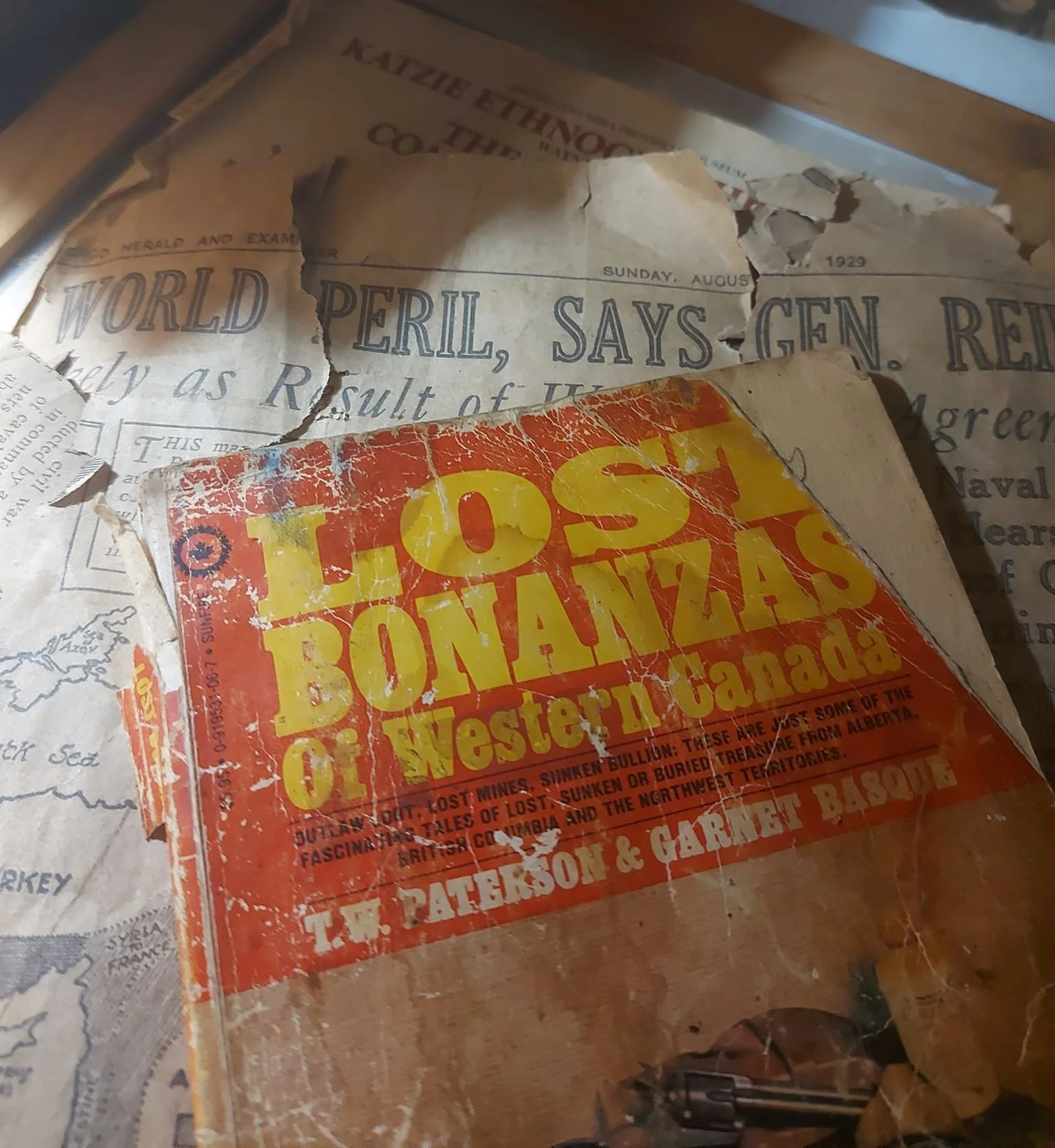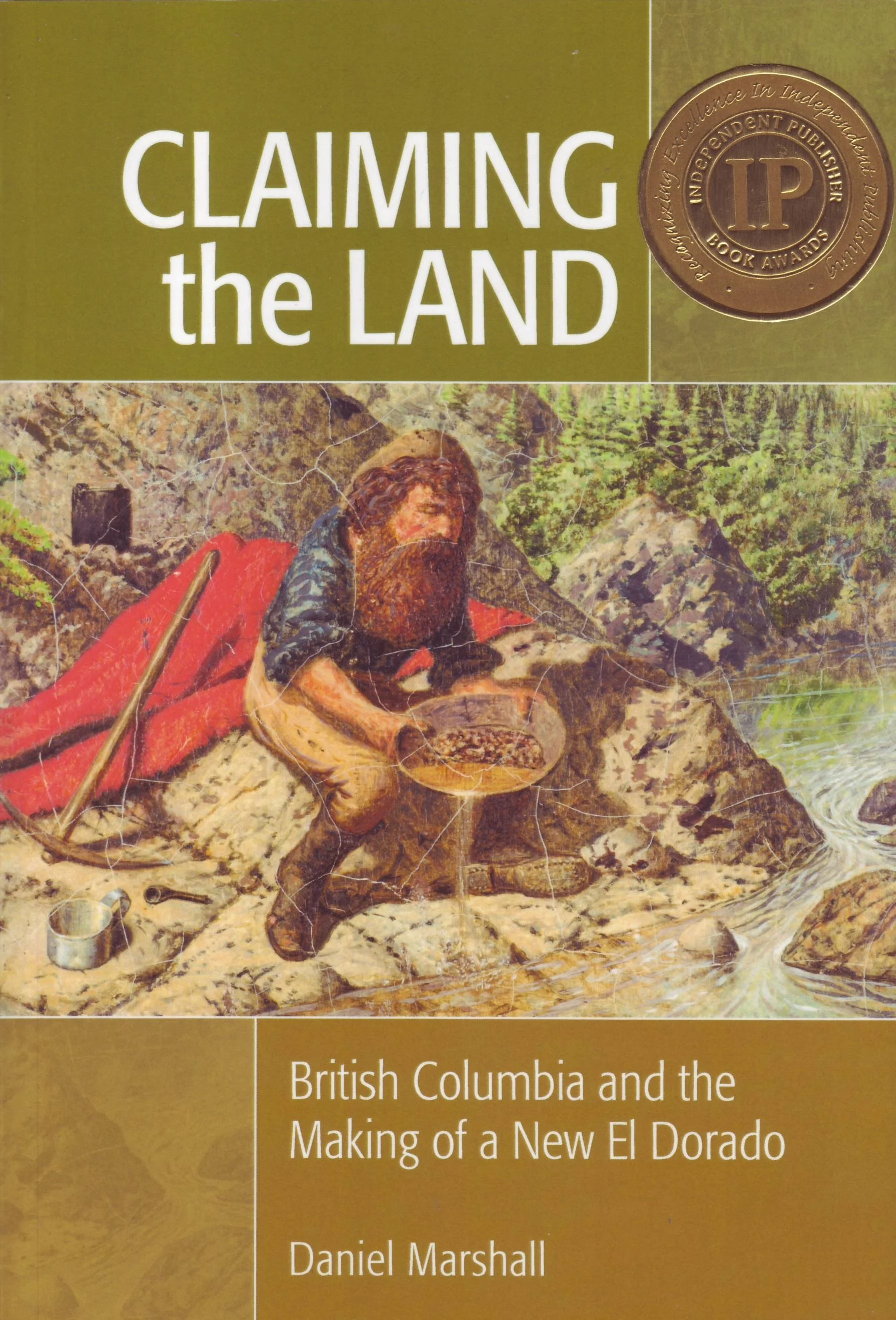Editorially speaking...
I’ll begin this week with a personal blast from the past, courtesy of reader Daryl Friesen:
“Just want to say hello... I have read your book [Lost Bonanzas of Western Canada] a few times over the years. My copy was purchased in Masset when I was 12 years old.
“My father and I were on a return journey from the logging camp and I was already Slumach-obsessed [he’s referring to Pitt River country’s fabled Lost Creek Mine] and chapter one in your book below added to the fire.
“The mystery was not extinguished but added to. Thanks for the book.”
Lost Bonanzas is long out of print but I’ve retold the story of murderer Slumach and his legendary lost gold mine several times since, most recently two years ago in my 31st book, Treasure Lost & Found in British Columbia.
This isn’t meant to be a plug but to make a point. In all the years my twice- then once-weekly column appeared in the Cowichan Valley Citizen with an accompanying mugshot, my feedback from readers was frequent and generous.
From Victoria to Nanaimo, almost every time I shopped, bought gas, whatever, someone would introduce themselves and tell me something about their family history, about a particular column they’d enjoyed, or even suggest new subjects. Most of these readers, as I came to expect, were middle-aged and older.
Every so often, however, it was someone really young, a teen-aged student.
As much as I appreciated the support of older readers, it was always a rush when they were much younger. It meant that, I like to think, I wasn’t just informing and entertaining people but passing on the torch of history. Something I wish our school system had done all these years.
If ever Canadians needed to know about their heritage, the good and the bad, it’s now in this age of increasing disinformation and what’s looking more and more like a joyfully embraced dumbing-down, almost to the point of trying to turn back the clock...
We can’t change the past but we can learn from it.
But only if we have the sense and the moral courage to acknowledge what has been, to celebrate Canada’s and Canadians’ achievements, and to try to do even better in the future.
* * * * *
Further to this—learning about our history—I offer for your edification, this mini-review of Claiming the Land: British Columbia and the Making of a New El Dorado by Cobble Hill university history professor, Daniel Marshall.
I thought I already knew something about the 1858 Fraser River gold rush; God knows, I’ve read and written about it enough.
But Dan—a personal friend, I must inform you—really opened my eyes.
And the book’s timing during the residential schools scandal and Truth and Reconciliation efforts, couldn’t have been better. That’s because the book isn’t the story of the gold rush itself (which was initiated by Indigenous prospectors, a surprise to me) but the story of an armed invasion by as many as 30,000 armed and mostly American gold-seekers.
Many of them had already participated in the near-extermination of California tribes and the invasion and occupation/annexation of Mexican territories. Their motto, “The only good Indian is a dead Indian,” (sic) is sad historical fact.
There was no one to stop them.
Colonial Vancouver Island Governor James Douglas had only a few Royal Navy ships and a few dozen marines at his command. Mainland B.C. wasn’t even his jurisdiction. For instruction, the British government was months away by sea mail.
At first, he was on his own.
The American interlopers made it plain that they were going to do as they pleased, to the point of ‘negotiating’ their own so-called peace treaties with Fraser River tribes. With overwhelming numbers and firepower, they informed each chief that they were taking total control of the diggings.
If the Indigenous owners continued to resist, every living member of the tribe but the young women (you can figure that one out) would be exterminated.
Native resistance, known as the Fraser River War, was futile and short-lived.
Ironically, one of the few things that saved what became British Columbia, Canada’s westernmost province, from being absorbed by the U.S. is that the placer gold appeared to run out. At least, the easily accessible claims did, and dismissing it as a “humbug,” most of the invaders returned to California within two years.
The richer Cariboo diggings came later, by which time the political landscape had dramatically changed. By then the British had asserted control of what had become the Crown Colony of British Columbia.
Much of the credit for this goes to James Douglas, by then governor of both V.I. and B.C. He didn’t do a perfect job by any means but if ever there was the right man in the right place at the right time, that man is Douglas who, in my mind, is an unsung Father of Confederation.
Simply put: If you think you’ve read the real story of the Fraser River gold rush and its portentous events (it led to the creation of reserves, for one), believe me, you haven’t.
You’ll have to read Dan’s award-winning Claiming the Land to know how history unfolded so momentously, 160-plus years ago.
Published by Ronsdale Press, it’s available at Volume One Books and, I’m sure, Ten Old Books. You’ll learn about British Columbia history as you never have before.


